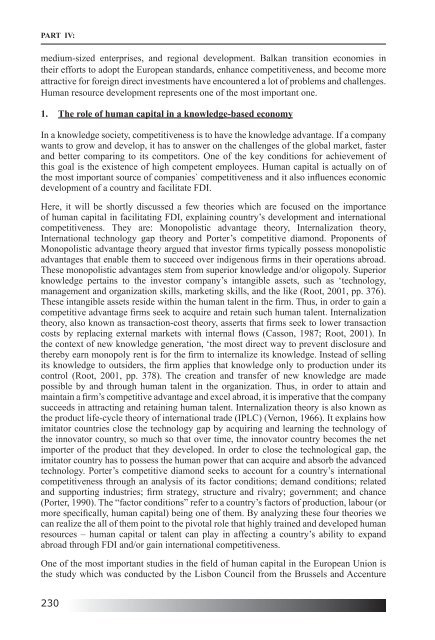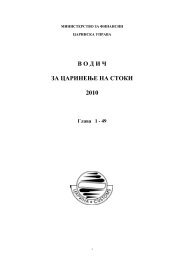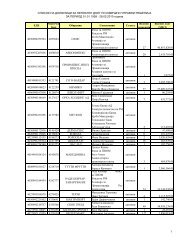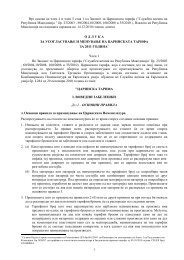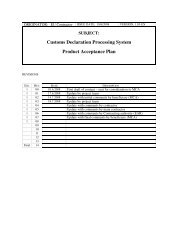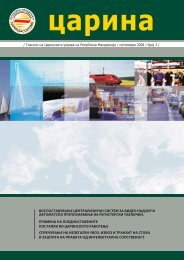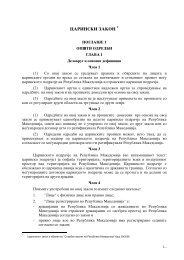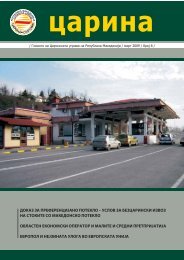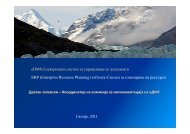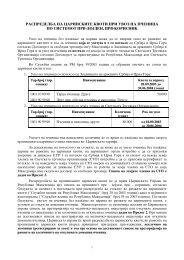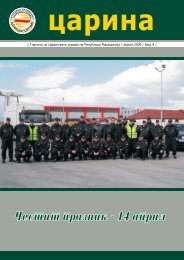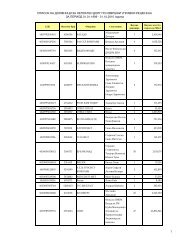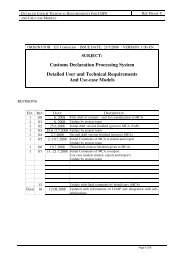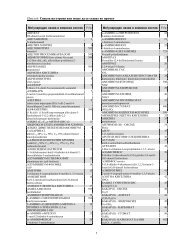REGIONAL COOPERATION AND ECONOMIC INTEGRATION
REGIONAL COOPERATION AND ECONOMIC INTEGRATION
REGIONAL COOPERATION AND ECONOMIC INTEGRATION
- No tags were found...
You also want an ePaper? Increase the reach of your titles
YUMPU automatically turns print PDFs into web optimized ePapers that Google loves.
PART IV:<br />
medium-sized enterprises, and regional development. Balkan transition economies in<br />
their efforts to adopt the European standards, enhance competitiveness, and become more<br />
attractive for foreign direct investments have encountered a lot of problems and challenges.<br />
Human resource development represents one of the most important one.<br />
1.<br />
The role of human capital in a knowledge-based economy<br />
In a knowledge society, competitiveness is to have the knowledge advantage. If a company<br />
wants to grow and develop, it has to answer on the challenges of the global market, faster<br />
and better comparing to its competitors. One of the key conditions for achievement of<br />
this goal is the existence of high competent employees. Human capital is actually on of<br />
the most important source of companies` competitiveness and it also influences economic<br />
development of a country and facilitate FDI.<br />
Here, it will be shortly discussed a few theories which are focused on the importance<br />
of human capital in facilitating FDI, explaining country’s development and international<br />
competitiveness. They are: Monopolistic advantage theory, Internalization theory,<br />
International technology gap theory and Porter’s competitive diamond. Proponents of<br />
Monopolistic advantage theory argued that investor firms typically possess monopolistic<br />
advantages that enable them to succeed over indigenous firms in their operations abroad.<br />
These monopolistic advantages stem from superior knowledge and/or oligopoly. Superior<br />
knowledge pertains to the investor company’s intangible assets, such as ‘technology,<br />
management and organization skills, marketing skills, and the like (Root, 2001, pp. 376).<br />
These intangible assets reside within the human talent in the firm. Thus, in order to gain a<br />
competitive advantage firms seek to acquire and retain such human talent. Internalization<br />
theory, also known as transaction-cost theory, asserts that firms seek to lower transaction<br />
costs by replacing external markets with internal flows (Casson, 1987; Root, 2001). In<br />
the context of new knowledge generation, ‘the most direct way to prevent disclosure and<br />
thereby earn monopoly rent is for the firm to internalize its knowledge. Instead of selling<br />
its knowledge to outsiders, the firm applies that knowledge only to production under its<br />
control (Root, 2001, pp. 378). The creation and transfer of new knowledge are made<br />
possible by and through human talent in the organization. Thus, in order to attain and<br />
maintain a firm’s competitive advantage and excel abroad, it is imperative that the company<br />
succeeds in attracting and retaining human talent. Internalization theory is also known as<br />
the product life-cycle theory of international trade (IPLC) (Vernon, 1966). It explains how<br />
imitator countries close the technology gap by acquiring and learning the technology of<br />
the innovator country, so much so that over time, the innovator country becomes the net<br />
importer of the product that they developed. In order to close the technological gap, the<br />
imitator country has to possess the human power that can acquire and absorb the advanced<br />
technology. Porter’s competitive diamond seeks to account for a country’s international<br />
competitiveness through an analysis of its factor conditions; demand conditions; related<br />
and supporting industries; firm strategy, structure and rivalry; government; and chance<br />
(Porter, 1990). The “factor conditions” refer to a country’s factors of production, labour (or<br />
more specifically, human capital) being one of them. By analyzing these four theories we<br />
can realize the all of them point to the pivotal role that highly trained and developed human<br />
resources – human capital or talent can play in affecting a country’s ability to expand<br />
abroad through FDI and/or gain international competitiveness.<br />
One of the most important studies in the field of human capital in the European Union is<br />
the study which was conducted by the Lisbon Council from the Brussels and Accenture<br />
230


